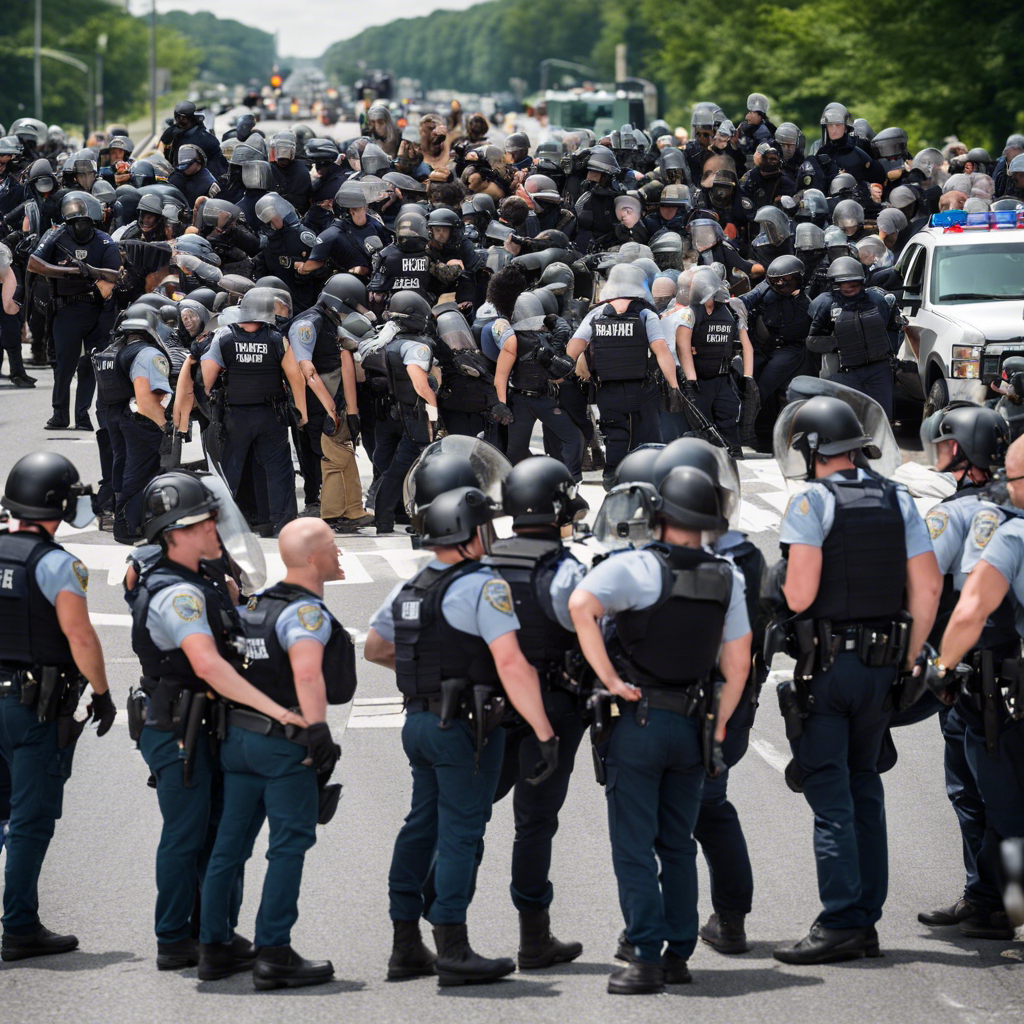Protesters Arrested in Philadelphia for Ceasefire Demonstration on Schuylkill Expressway

Jewish Voice for Peace activists call for an immediate ceasefire in Gaza, leading to a major protest and arrests on the Schuylkill Expressway in Philadelphia.
More than 30 protesters were arrested in Philadelphia after blocking traffic on the westbound lanes of the Schuylkill Expressway during a demonstration calling for a ceasefire in Gaza. The protest, organized by Jewish Voice for Peace, saw activists gathering on the Spring Garden Street Bridge, hanging banners that read “Let Gaza Live” and “Ceasefire Now.” This act of civil disobedience resulted in a 25-minute shutdown of the highway and the subsequent arrest of 32 individuals. The protest aimed to draw attention to the ongoing conflict in Gaza and put pressure on politicians to take action.
A Bold Act of Civil Disobedience
As the group of approximately 150 protesters with Jewish Voice for Peace gathered on the Spring Garden Street Bridge, their banners demanding a ceasefire in Gaza caught the attention of passersby. The activists, determined to make their voices heard, took a bold step by blocking traffic on the westbound lanes of the Schuylkill Expressway. They left their vehicles and stood on the highway, causing a disruption that lasted for about 25 minutes. The intention was to draw attention to the dire situation in Gaza and to call for an immediate end to the violence.
Police Intervention and Arrests
The protest quickly attracted the attention of law enforcement, with Philadelphia police and Pennsylvania State Police swiftly responding to the scene. Chopper 6 captured the moment as police officers surrounded the group and began making arrests. In total, 32 individuals were taken into custody and will be cited for being on the highway. The specific charges will be determined by the state police. Despite the arrests, the protesters remained resolute in their mission to bring attention to the ongoing conflict in Gaza.
Voices of Conscience and Faith
Among those arrested was Jay Bergen, who expressed his frustration with the continued support of the conflict by politicians. He emphasized the importance of people of faith and conscience speaking out against what he called “genocide.” Rabbi Linda Holtzman, another participant, acknowledged the inconvenience caused by the protest but stressed that disrupting normal life was necessary to demand a ceasefire. She hoped that those stuck in traffic would understand the urgency of the situation in Gaza.
A Nationwide Movement
The Philadelphia protest was part of a nationwide demonstration that took place in eight cities across the United States. Organizers made it clear that these actions would continue until their demands for an immediate ceasefire were met. Hilah Cohen, an Israeli-American student, spoke on behalf of the Jewish community, stating that they stood united with their broader communities to call for an end to the violence. The fact that the protest coincided with the last night of Hanukkah added symbolic significance to the demonstration.
A History of Activism
This is not the first time that Jewish Voice for Peace activists have taken to the streets to protest the Israeli-Palestinian conflict. Earlier this year, a similar demonstration was held at 30th Street Station, where over 60 protesters were arrested for blocking train entrances. These acts of civil disobedience reflect the growing frustration and urgency felt by activists who believe that immediate action is needed to halt the violence in Gaza.
Conclusion:
The protest on the Schuylkill Expressway in Philadelphia, led by Jewish Voice for Peace, brought attention to the ongoing conflict in Gaza and called for an immediate ceasefire. The arrests of 32 protesters highlighted the determination of these activists to disrupt normal life in order to draw attention to the dire situation. As the nationwide movement continues, it remains to be seen whether these protests will have the desired impact on policymakers. However, the voices of those demanding an end to the violence in Gaza are growing louder, and their message is resonating with communities across the United States and beyond.

